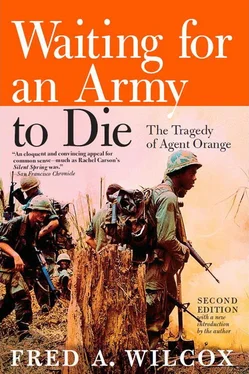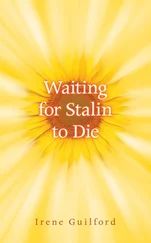Recalling a conversation with a member of his unit who had said he intended to become a police officer in civilian life, DeBoer tried to remember if the man whom he had spent a year of his life dodging ambushes, cursing the heat, going on R&R, bragging about sexual conquests both knew were more fiction than fact, counting first the months then the days and finally the hours until they left “the Nam” for good—if the man with whom he had spent that first terrifying night in the jungle had ever really told him where he planned to settle down after the war. But since he was playing Holmes and knew that quite often this distinguished investigator would break a case with a hunch that seemed foolhardy to his associates, DeBoer decided to gamble. He went to Number One Police Plaza in Manhattan, where he inquired after an officer named Kevin———. [2] Name withheld by request.
To his amazement he was told that Kevin did work for the New York City police department, but because he was a narcotics agent the department was not at liberty to give his number or address to anyone. They did agree to leave a message for Kevin, asking him to call Ron DeBoer.
DeBoer waited near the telephone that night, excited but not at all certain this break would lead much further. It had been more than ten years since he and Kevin boarded their “Freedom Bird” to the states, and they had not kept in touch. In the intervening years many veterans, wanting only to forget their combat experiences and bitter over the way they had been treated since returning from Asia, had gone more or less underground, and DeBoer knew that it would not be easy to ferret them out. But the phone rang and “Lo and behold it was Kevin. And he was really excited to hear from me, and just couldn’t believe that I would go to all that trouble to find him. We talked for some time and I asked him how he was feeling, and whether or not he was having any problems. He said that his health was fine, although something about the way he said it made me suspect that he might not be telling me the whole truth. But what he did say was that his first child was born dead, and his son was born with a deformed penis. So I had cancer and Kevin had this tragedy strike in his life. But at the time I just thought, Well, this is a coincidence. Still, I really wanted to talk to more of the guys in my platoon. By this time I had read too much about dioxin and its effects, talked to Victor Yannacone at length, and gone through my own turmoil over my testicular cancer. I felt that I just couldn’t be satisfied until I had talked with every one of the men I had served with.”
Kevin gave DeBoer the address of a member of their platoon who was working as a postman in a small Pennsylvania town, and DeBoer soon tracked him down. “Just like Kevin he couldn’t believe that I would be looking him up after all these years. And he tells me he’s doing fine, that he has no problems; but when I asked him how his children were, he said that his daughter had been born with a deformed leg and his son was born with PKU, which is a form of mental retardation. But what interested me the most was that neither one of these veterans have any family history of birth defects. They don’t know what caused these things. But I knew, and I still know, what it was—they had been exposed to dioxin.
“So here I was now and it was just around Christmas time, and I had cancer, Kevin had a child born dead and another with a birth defect, and Hoffman had two children with birth defects, so it was just like batting a thousand. I couldn’t stop now. I wanted to talk to every member of my platoon just as soon as I could, because I had already gone beyond the coincidence stage in my investigation. The case wasn’t ironclad yet, but it was getting tighter.”
Hoffman gave DeBoer the telephone number of Al Boyd, a platoon member living in California who also worked for the post office. Boyd was married, but he and his wife had decided not to have children. However, when DeBoer asked him about his health, Boyd answered that “he had all kinds of health problems. All kinds. At thirty-three he is suffering from hypertension, severe hypertension. He has to be on medication for it. He has a constant nervous upset stomach and they don’t know what the hell his problem is. He’s been hospitalized with hepatitis. He has liver problems. Just about anything you can name. And the guy told me, he says, ‘Ron, I’m thirty-three years old and I feel like I’m sixty.’”
From California the trail doubled back to Denver, Colorado, to a veteran who told DeBoer he was divorced, had not been feeling well for the past few years, and that something had happened that he simply could not understand. Before he went to Vietnam, he told DeBoer, he had enjoyed the taste of beer and had actually prided himself on the amount he was able to consume during a night out with his drinking buddies. But now, he lamented, he could not drink even one can of beer without getting violent headaches, feeling dizzy, and even passing out. His intolerance for alcohol had become “total,” and he wondered what had happened to his body, whether he had picked up some exotic disease in Vietnam. That his liver might have contained traces of dioxin had not occurred to him. Neither the VA nor the Department of Defense had sent him a letter advising him that he and members of the 17th Air Cavalry had been exposed to the most toxic man-made substance in the world, and that it might be beneficial to him if he submitted to a complete physical examination. Like DeBoer just a year or two before, the man knew little about the defoliation campaign in Southeast Asia and could not understand why, when just a few years before he had felt ready to compete in the Olympics, his body seemed now to betray him.
One of the most peculiar responses to DeBoer’s inquiries, yet one that he would come to understand during his work with the New York State Temporary Commission on Dioxin Exposure, came during a conversation he had with the sixth member of his platoon. The man and his wife were on the phone, and, says DeBoer, the veteran’s wife seemed very interested in his questions and seemed to want more information about how exposure to Agent Orange might have affected her husband. But the man became extremely defensive, even angry, and dismissed DeBoer by announcing that there “is nothin’ wrong with me and nothin’ wrong with my family. Goodbye. I hope you guys make out all right, but don’t call me, I’ll call you.” DeBoer never heard from him again, and he was unable to uncover any other leads.
“So I was able to locate only six men out of the twenty that were in the platoon, and what I found was that five of the six had hard-core Agent Orange problems: dead children, deformed children, cancer, gastritis, hypertension, liver problems, and other serious health problems. From then on I knew that there was something that made us different from the rest of the country. I was totally convinced of that then, and I’m totally convinced of it now. And the fact that the Veterans Administration has gone out of its way to drag its feet in coming to terms with conducting a true epidemiological study of the 2.5 million men and women who served in Vietnam, comparing them to 2.5 million people who did not go to Vietnam but were in the service, is indicative of just how serious the problem may be. Why haven’t we been compared to noncombat veterans to see if in fact we are sicker, our children are born with more birth defects, we suffer from a higher rate of cancer? We know that there are people who can do this study, that it wouldn’t even be all that difficult to do. But instead the VA prefers to insult us by dragging its feet and then finally coming up with a prototype for a study that is perforated with inconsistencies, just a waste of taxpayers’ money. So once again we have found the Vietnam combat veterans just can’t trust the VA.
Читать дальше











